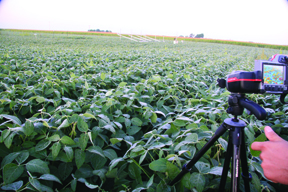Praveen Kumar
 Water Cycle: Predicting the Consequences of Change
Water Cycle: Predicting the Consequences of Change
Earth’s water is in continual motion, moving from one location to another and changing in and out of its liquid, ice, and vapor states. This water cycle can be conceptualized as a network of interactions between the hydrosphere and the biosphere. Perturbations to the network (e.g., elevated CO2 concentrations in the atmosphere, changes in land use or land cover) can result in fluctuations with potentially profound consequences for human, biological, and environmental processes.
During his Center appointment Professor Kumar and his research group will develop a mathematical framework to predict the fate of fluctuations through the water cycle. There are two specific research tasks:
• Identify, characterize, and represent process networks by mapping the flow of information across interacting variables.
• Use the framework to identify the connectivity, feedback dynamics, and emergent patterns in the process network resulting from ecophysiological changes in vegetation in response to elevated CO2 levels.
The project will exploit recent advances in network theory to help to answer these questions: Can we identify vulnerabilities in the water cycle that are especially sensitive to perturbations across space and time? Can we anticipate, predict, and manage thresholds of irreversible change (tipping points)? How do feedbacks trigger tipping points in both the structure and functioning of the water cycle? What are the properties of the water cycle beyond the tipping point? Methodological techniques developed for the project are expected to have application in fields ranging from engineering and mathematics to biology, ecology, and geosciences.
